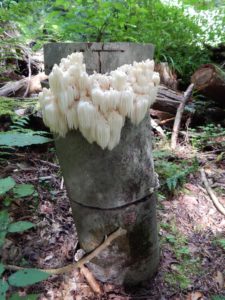10th Annual Camp Mushroom teaches basics of forest mushroom cultivation
March 18, 2015/
ITHACA, NY — Camp Mushroom is Cornell University’s annual two-day event for farmers, woodlot owners, and hobby growers who want to cultivate their own shiitake, oyster, lions mane, and stropharia mushrooms.
This year marks the 10th year of the course, as forest mushroom cultivation blossoms in the northeast as a new small farm industry. Research on active farms, facilitated by Cornell, University of Vermont, and Chatham University has found that growers are able to begin making a profit in year two. It is projected that a small 500-log operation could gross $9,000 over a five-year period.
A recent article in the Small Farms Quarterly describes the economics in more detail: https://smallfarms.cornell.edu/2015/01/12/mushrooms/
Participants will be trained in three methods of mushroom cultivation; shiitake on bolts, lions mane/oyster on totems, and stropharia in woodchip beds. In addition, laying yard and management considerations will be covered. Each participant will also inoculate two shiitake blots to take home. Anyone who wants to get into mushroom growing as a serious pursuit should not miss out on this opportunity to learn from experienced growers and researchers who will present for this event.
COST: $100 for overnight guests (primitive cabin with heat), $70 for commuters. Includes Friday dinner and breakfast and lunch on Saturday, featuring mushrooms and local, organic foods.
Schedule:
Friday- 6pm Dinner, Program from 7 – 10pm
Saturday – 8am Breakfast, Program from 9 – 3pm (with lunch)
LEARN MORE AND REGISTER HERE: https://blogs.cornell.edu/mushrooms//2015/03/17/10th-annual-camp-mushroom-april-24-25/
How to Grow Shiitake Mushrooms from Developing Pictures on Vimeo.
Posted in News and Updates


